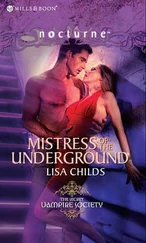The government had purchased Bessie Carpenter and Christian Markson from a bankruptcy hearing in North Carolina. Sam helped them rehearse as they walked to town. He lived two miles outside, in a cottage his grandfather had built. His parents had operated the copper shop on Main Street, but Sam chose a different path after they died. He sold the business to one of the many transplants who’d come to South Carolina for a fresh start and Sam now worked at one of the saloons, the Drift. His friend owned the place, and the atmosphere suited his personality. Sam liked the spectacle of the human animal up close, as well as his access to the workings of the town, once the drink loosened tongues. He made his own hours, which was an asset in his other enterprise. The station was buried beneath his barn, as with Lumbly.
At the outskirts Sam gave them detailed directions to the Placement Office. “And if you get lost, just head for that”—he pointed at the skyscraping wonder—“and make a right when you hit Main Street.” He would contact them when he had more information.
Caesar and Cora made their way up the dusty road into town, unbelieving. A buggy rounded the turn and the pair nearly dove into the woods. The driver was a colored boy who tipped his cap in a jaunty fashion. Nonchalant, as if it were nothing. To have such bearing at his young age! When he was out of sight they laughed at their ridiculous behavior. Cora straightened her back and held her head level. They would have to learn how to walk like freemen.
In the following months, Cora mastered posture. Her letters and speech required more attention. After her talk with Miss Lucy, she removed her primer from her trunk. While the other girls gossiped and said good night one by one, Cora practiced her letters. The next time she signed for the Andersons’ groceries, she would write Bessie in careful print. She blew out the candle when her hand cramped.
It was the softest bed she had ever lain in. But then, it was the only bed she had ever lain in.

Miss Handler must have been raised in the bosom of saints. Even though the old man was utterly incompetent with regards to the rudiments of writing and speaking, the teacher was never less than polite and indulgent. The entire class — the schoolhouse was full on Saturday mornings — shifted at their desks while the old man sputtered and choked on the day’s lessons. The two girls in front of Cora made cross-eyes at each other and giggled at his botched sounds.
Cora joined the class in exasperation. It was nigh impossible to understand Howard’s speech under normal circumstances. He favored a pidgin of his lost African tongue and slave talk. In the old days, her mother had told her, that half language was the voice of the plantation. They had been stolen from villages all over Africa and spoke a multitude of tongues. The words from across the ocean were beaten out of them over time. For simplicity, to erase their identities, to smother uprisings. All the words except for the ones locked away by those who still remembered who they had been before. “They keep ’em hid like precious gold,” Mabel said.
These were not her mother’s and grandmother’s times. Howard’s attempts at “I am” consumed precious lesson time, already too short after the work week. She had come here to learn.
A gust sent the shutters wheezing on their hinges. Miss Handler put down her chalk. “In North Carolina,” she said, “what we are doing is a crime. I would be fined a hundred dollars and you would receive thirty-nine lashes. That’s from the law. Your master would likely have a more severe punishment.” The woman met Cora’s eyes. The teacher was only a few years older than her but she made Cora feel like an ignorant pickaninny. “It’s hard to start from nothing. A few weeks ago, some of you were where Howard is now. It takes time. And patience.”
She dismissed them. Chastened, Cora snatched up her things, wishing to be the first one out the door. Howard wiped his tears with his sleeve.
The schoolhouse lay south of the rows of girls’ dormitories. The building was also used for meetings in need of a more serious atmosphere than that of the common rooms, Cora noticed, such as the assemblies on hygiene and feminine matters. It looked out on the green, the colored population’s park. Tonight one of the bands from the men’s dormitory was playing in the gazebo for the social.
They deserved Miss Handler’s scolding. South Carolina maintained a different attitude toward colored progress, as Sam had told Cora on the platform. Cora had savored this fact in a multitude of ways over the months, but the provision for colored education was among the most nourishing. Connelly once put out a slave’s eyes for looking at words. He lost Jacob’s labor, though if the man had been talented the overseer would have subjected him to a less drastic punishment. In return he gained the eternal fear of any slave with a notion to learn his letters.
Don’t need eyes to shuck corn, Connelly told them. Or to starve yourself to death, as Jacob did presently.
She put the plantation behind her. She did not live there anymore.
A page slipped out of her primer and she chased it onto the grass. The book was falling apart, from her use and that of the previous owners. Cora had seen little children, ones younger than Maisie, use the same primer for their lessons. New copies with fresh spines. The ones from the colored schoolhouse were well-thumbed and she had to squeeze her letters above and in between other people’s scribblings, but there was no whipping attached just for looking at it.
Her mother would be proud of her. As Lovey’s mother was likely proud of her daughter for running away, for a day and a half. Cora replaced the page in her book. She pushed the plantation from her again. She was getting better at it. Her mind was wily though, twisty. Thoughts she did not like wormed in from the sides, from beneath, through the cracks, from places she had battened down.
Of her mother, for example. Her third week in the dormitory, she knocked on the door of Miss Lucy’s office. If the government kept records of all the colored arrivals, perhaps among the many names was that of her mother. Mabel’s life after her escape was an enigma. It was possible she was one of the freemen who came to South Carolina for the opportunities.
Miss Lucy worked in a room down the hallway from number 18’s common room. Cora did not trust her, yet there she stood. Miss Lucy admitted her. The office was cramped, with filing cabinets the proctor had to squeeze through to get to her desk, but she kept it pleasant with samplers on the walls detailing farming scenes. There was no room for a second chair. Visitors stood for their audience, which kept the visits short.
Miss Lucy regarded Cora over her glasses. “What’s her name?”
“Mabel Randall.”
“Your name is Carpenter,” Miss Lucy said.
“That my daddy’s name. My mother, she a Randall.”
“ That is ,” Miss Lucy said. “ She is. ”
She stooped before one of the cabinets and ran her fingers over the blue-tinted papers, glancing in Cora’s direction every so often. Miss Lucy had mentioned that she lived with a group of proctors in a boardinghouse near the square. Cora tried to picture what the woman did when she was not managing the dormitory, how she spent her Sundays. Did she have a young gentleman who took her places? How did an unattached white woman occupy herself in South Carolina? Cora was getting braver but still stuck close to the dormitories when not attending to the Andersons. It seemed prudent, those early days out of the tunnel.
Читать дальше













